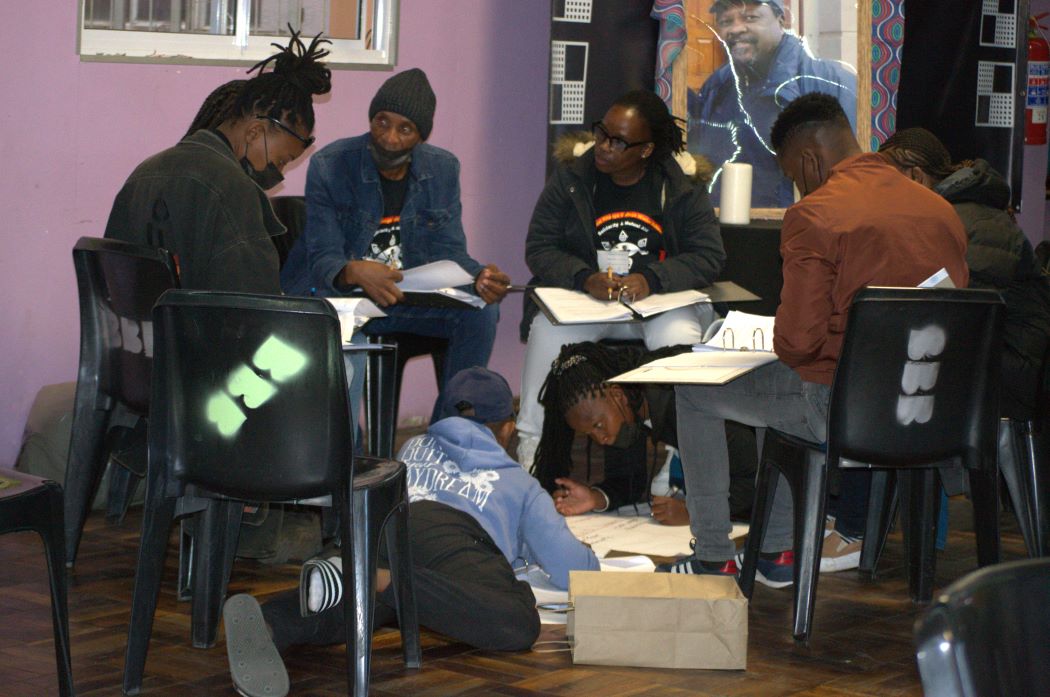On the second day of the winter school, activists dug deep into discussing solidarity and mutual aid. This discussion focused on a silent drama where participants used statues and role-play showing the problems in their communities without saying a word. Each group had 15 minutes to plan and perform their chosen issues faced by their communities.
Participants reflected on their experiences in their communities, neighbourhoods, homes, streets, churches, and other social settings. They showed everyday issues like domination and violence against women and children, substance abuse, teenage pregnancy, crime, load-shedding, and poor community safety through their statues and role-play. Later, groups discussed common problems that came up from all the play, it became clear that in our communities’ issues such as the assault and abuse of women, crime, and substance abuse are deeply interconnected. For example, Group 2 formed a human statue showing a pregnant teenager witnessing her father abuse her mother and her father abusing alcohol while her brother engages in crime.
This depicted a cycle of hopelessness in a community where no one intervenes. Participants also said the cycle is what they come across in their communities where parents neglect their kids because of alcohol and the girl children become pregnant at a very young age. The girls become victims to older men especially because the girls need money, and the older men have it. Youths fall deeply into substance abuse.
The cycle of issues creates and sustains trauma in our community members and the young generation as this brings bad image in our communities. Anna-Marie who is a participant talked about the importance of respect between parents and children to create better inter-generational relationships. She suggested organising campaigns and awareness programs in communities to revive inter-generational love.
Noluthando Xaba, also a participant, suggested teaching respect and practicing Ubuntu – humanity towards others – in our communities. Cde Maria stressed the need to break inter-generational traumas and create safer communities. She highlighted that ensuring safety is important because a country cannot have democracy if there is no democracy at home.
This article was submitted as part of the Imbila Yesu publication produced daily for the duration of the Winter School in 2024 (14-20 July 2024). It appeared in Edition 1, released on 16 July 2024. You may republish this article, so long as you credit the author and Karibu! Online (www.Karibu.org.za), and do not change the text. Please include a link back to the original article.


 Download PDF
Download PDF